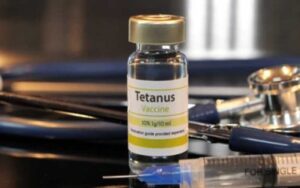Bhutan, a Buddhist kingdom on the Himalayas’ eastern edge, is known for its monasteries, fortresses (or dzongs) and dramatic landscapes that range from subtropical plains to steep mountains and valleys. In the High Himalayas, peaks such as 7,326m Jomolhari is a popular trekking destination. Paro Taktsang monastery (also known as Tiger’s Nest) clings to cliffs above the forested Paro Valley.
Recommended Travel Vaccinations For Bhutan
| VACCINE | HOW DISEASE SPREADS | PREVENTIVE ACTIONS |
| Hepatitis A | You can get Hepatitis A through contaminated food or water in The Bhutan,regardless of where you are eating or staying. | Get vaccinated. Eat and Drink safely |
| Hepatitis B | You can get hepatitis B through sexual contact, contaminated needles, and blood product and recommends this vaccine if you might have sex with a new partner, get a tattoo or piercing, or have any medical procedures. | Get vaccinated.Avoid sharing body fluids.Avoid non sterile medical or cosmetic equipment |
| Rabies | You can get Rabies from the Saliva of the infected animals | Get vaccinated.Keep away from animal |
| Typhoid | You can get Typhoid through contaminated food or water in Bhutan. Specially if you are traveling in rural areas. | Get vaccinatedEat and Drink safely |
| Maleria | Malaria is a mosquito-borne infectious disease that effects humans and other animals.Malaria causes symptoms that typically include fever, tiredness, vomiting, and headaches.In severe cases it can cause yellow skin, seizures, coma, or death. You may need to take prescription medicine before, during, and after our trip to prevent malaria, depending on your travelplans, such as where you are going, when you are traveling, and if you arespending a lot of time outdoors or sleeping outside. | Take antimalarial meds Prevent bug bites |
| Japanese Encephalitis Vaccine | Japanese encephalitis (JE) is a disease spread through mosquito bites. Symptoms usually take 5-15 days to develop and include fever, headache, vomiting, confusion, and difficulty moving. | Recommended depending on itinerary and activitiesMay be given to short- and extended-stay travelers, recurrent travelers and travel to rural areasPresent throughout country Most cases from April to August |
Routine Vaccinations For Bhutan
| VACCINE | HOW DISEASE SPREADS | PREVENTIVE ACTIONS |
| Measles, Mumps and Rubella Vaccination (MMR) | Measles, mumps, and rubella are viral diseases.Measles starts as a fever, cough, runny nose, conjunctivitis (pinkeye), and a red, pinpoint rash that starts on the face and spreads to the rest of the body.The mumps virus usually causes swelling in glands just below the ears, giving the appearance of chipmunk cheeks.Rubella is also known as German measles. It can cause a mild rash on the face, swelling of glands behind the ears, and in some cases, swelling of the small joints and low-grade fever. | Get vaccinated.Avoid sharing contacts with infected people.wash your hands using soap. Avoid infected person coughs, sneezes or even talks |
| Tetanus, Diphtheria and Pertussis (Tdap) Vaccination | Tetanus enters the body through breaks in the skin. This is most often cuts or wounds made by contaminated objects.Tetanus enters the body through a wound or cut. It affects the brain and nervous system and causes extremely painful muscle spasms.Diphtheria is a very contagious infection that makes it difficult to breathe. In severe cases, it can cause heart and nerve damage.Pertussis, or whooping cough, is an extremely contagious respiratory infection that can lead to severe breathing problems, especially in infants | Get vaccinated. |
| Chickenpox (Varicella) Vaccination | Chickenpox is a highly contagious infection caused by the varicella-zoster virus. It causes a blister-like rash across the body.Chickenpox can spread from someone with shingles to other who has never had the disease. This happens if a person touches or inhales droplets of the shingles blisters. | Get vaccinated.Avoid sharing contacts with infected peopleAvoid sharing contacts with infected people |
| Polio Vaccination | “Polio (poliomyelitis) is a potentially deadly, life-altering disease. The virus enters the body and attacks the brain and spinal cord, often causing paralysis | Get vaccinated.Avoid sharing contacts with infected people.Avoid contaminated food or water, though sneezes or coughs can transmit the virus |
| Flu Shot | The flu vaccine is the most effective way to prevent illness caused by seasonal influenza viruses. The flu vaccine reduces a person’s risk of developing flu-related illness | Avoid sharing contacts with infected people.Avoid contaminated food or water, though sneezes or coughs can transmit the virus |










